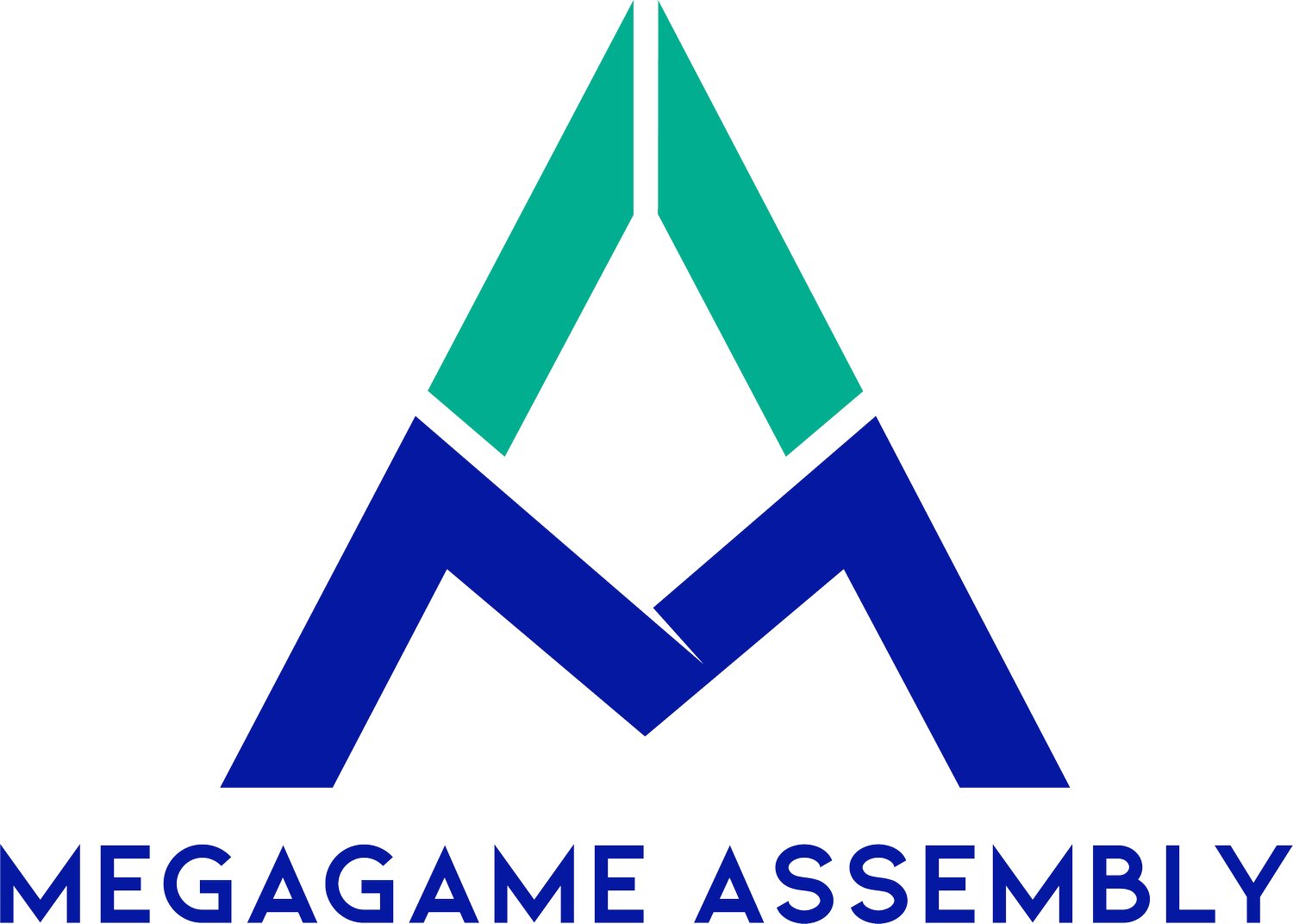Q&A interview with new player, Tom Stenton
This week we interview Tom Stenton who is a new player to megagames on what he enjoys about the hobby and what keeps him coming back.
Tom on the left having a great time at Event Horizon (Photo by: Ian Angus)
Obligatory question first, how did you find out about megagames?
My absolute favourite types of games (video and board) have always tended to be overly long and demanding grand strategies that mix conflict with politicking and that also result in a really great story that you can think back over and enjoy. For quite a long time I’d wondered about what that type of gaming would look like on a massive scale – with 20+ players, hundreds of moving pieces (figuratively and literally) and the potential for numerous weighty narrative shifts. I always loved the idea of it but had no clue that there was a community doing precisely that already. Then about five years ago I was getting seriously into board gaming and came across Shut Up & Sit Down’s first Watch The Skies video. The whole concept clicked with me immediately and I watched that video over and over again, getting excited at the prospect of taking part in a megagame. However, due to general absent-mindedness, I didn’t get around to actually signing up for my first game until last year.
I understand you’ve played three megagames so far, which ones were they?
Mirrorshades 2.0 by Alex Beck through Horizon Megagames
New World Order 2035 by Jim Wallman through Megagame Makers
Event Horizon by Johan Olofsson through Horizon Megagames
What do you enjoy about playing megagames?
That’s a difficult question to answer in a straightforward way. One of the main reasons I like games in general is that I really enjoy making difficult strategic and tactical decisions but then getting to see the results of those decisions very quickly (relatively speaking) without being bogged down in boring admin. I also thoroughly enjoy experiencing, and then looking back on, the chaotic narratives that develop as a result of my, and other player’s, decisions. Even in simple abstract strategy games the topography of the board still tells a story. Megagames absolutely facilitate this (although how much and how often might depend upon your individual role) as well as putting a strong emphasis on social interaction/manipulation. I also enjoy the frequency with which a megagame turns into an exercise in pressurised crisis management and the dramatic, often explosively over the top, cinematic style narrative shocks. The after-game reflections and the retelling of the story from different perspectives with a group of people who are all as excited by the game as you are is also a really important part of the megagame experience for me.
Tom (left) leading his team at Mirrorshades 2.0 in London (Photo by: Alex Beck)
Is it a megagame theme or something else that makes you want to sign up to a game?
Honestly, at the moment, it’s mostly down to my availability more than anything else. It may have helped that my first megagame (Mirrorshades) was based on a theme (Cyberpunk) that I’m pretty familiar with but then I’ve had friends whose first game was centred around a very specific part of history that they had no prior knowledge of and they had an equally great time. Theme is probably the thing that first grabs my attention. But looking into how the teams are structured and getting a rough idea of how players might be interacting with the overall narrative are the things that really get me interested. Ultimately though, as I’m still very new to megagames, I’m excited to play any of them really. Maybe once I’ve got more than 10 under my belt I’ll become a little more discerning.
After your first megagame, what made you come back?
Whilst I don’t imagine every megagame, and every role within each one, would be a perfect fit for every person first time around, I was particularly lucky with Mirrorshades. As the CEO of one of the four corporations in the game, I had a direct line to influencing the overall narrative in very clear and straightforward ways and that was ultimately very rewarding. Also the role was relatively light on rules overhead and this meant I could really focus on strategic thinking and social interactions. I should add also that during Mirrorshades the players that I interacted with the most (the other CEOs) where all fantastic. It quickly became apparent that all three of them were really experienced megagamers and the way they interacted with me, and generally played the game, gave me a really positive impression of what the megagaming community is like. Along with that, the Control team were all great. Rather than behaving like stuffy rules arbiters, they were extremely easy going and were having as much fun as the players watching the narrative unfold. Overall, my first megagame basically confirmed my sense that the general format was something I would really enjoy and then the other players made the experience within that format a really positive one.
Do you come from a board game or RPG background?
About a decade ago I was playing D&D and World of Darkness quite regularly and had very little exposure to modern board gaming. Nowadays it’s the reverse – I’ve got an embarrassingly large board game collection and only get to play RPGs sporadically.
Thanks to Tom for answering our semi-random questions! If you’d like to write a blog post for us or answer some interview questions, let us know.
If Tom’s interview has inspired you to play a megagame, check out our global calendar now and see if a game is running near you.


